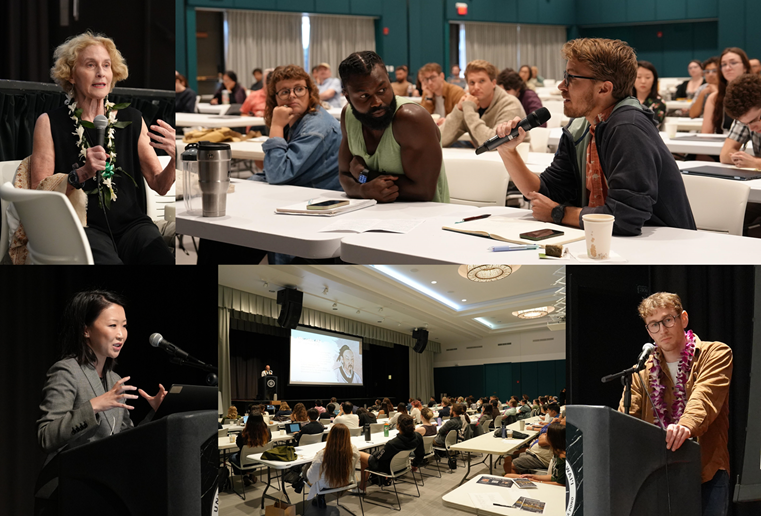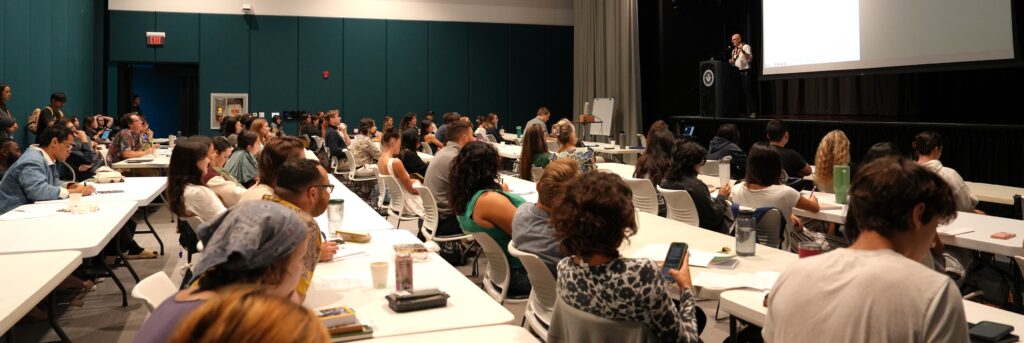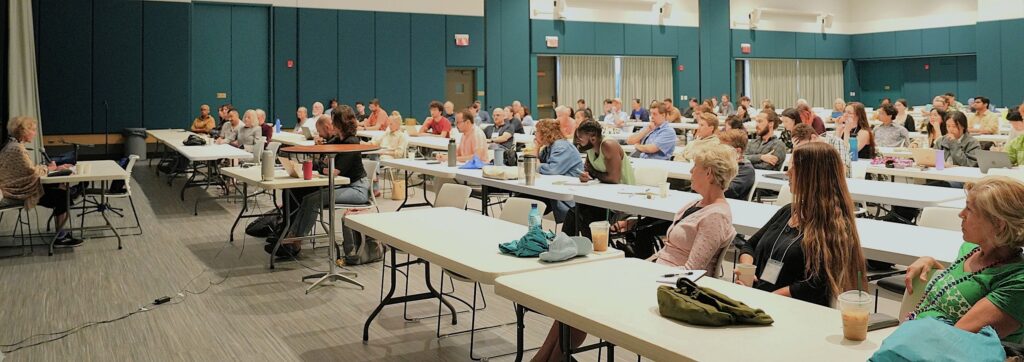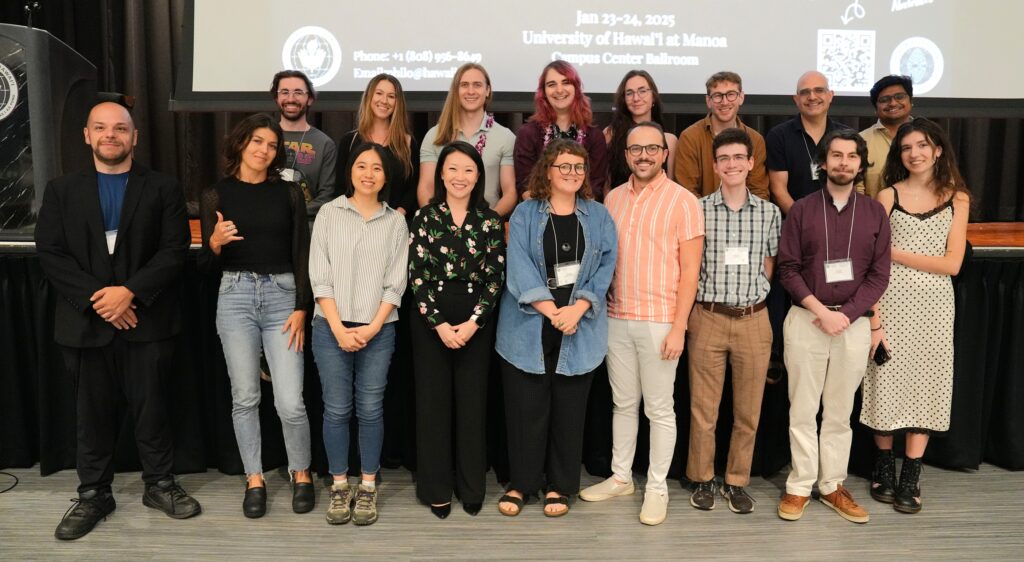The 2025 Uehiro Philosophy Graduate Student Conference, held on January 23–24, presented the work of aspiring young scholars from around the world under the theme “Political and Social Emotions — How They Divide or Unite.” Besides students representing UH Mānoa, nine graduate students were selected to present from institutions such as Oxford University, York University, the Indian Institute of Technology, Princeton University, the University of Arizona, Fordham University, the University of North Carolina at Chapel Hill, the University of Nebraska–Lincoln, the University of Rochester, and Virginia Tech. Events began at 9:30 a.m. and extended beyond the scheduled 4:25 p.m. end time due to the intensely animated discussions following the keynote talks.

Dr. Hagop Sarkissian, the first day’s keynote speaker, gave a compelling talk titled “Resonating Presence: How Personal Vibes Shape Social-Emotional Dynamics.” He defined “vibes” as the emotional atmosphere a person creates and argued that they subtly shape social interaction. Starting from the question of whether the atmosphere people give off is subjective or objective, the lecture offered a multifaceted analysis of emotions in communication. Drawing on classical Confucian thought and research on nonverbal behavior, Dr. Sarkissian showed how vibes can influence—and even transform—group dynamics. He examined the issue not only from the viewpoint of philosophy in the narrow sense but also incorporated broad insights from psychology and sociology.

Dr. Martha Nussbaum, our second keynote, delivered a lecture titled “War and Types of Pacifism.” She began by distinguishing two kinds of pacifism: Act Pacifism, which is a refusal to commit violent acts, and Emotional Pacifism, which is a rejection of retributive anger and a commitment to universal love. Dr. Nussbaum argued that one can be an emotional pacifist while still forcefully resisting an unjust attacker. Citing Martin Luther King Jr. and Nelson Mandela, she articulated how these two forms of pacifism can—and often must—come apart in practice in order to be effective.
The lecture Dr. Nussbaumwas delivered was far-reaching, surveying the histories of violence and nonviolence in Britain, the United States, India, Africa, and Asia from the perspective of emotion. She maintained that pacifism, in order to succeed, may require strong human sentiments such as love, hope, and happiness. Rather than dismissing justifiable anger at injustice as “mere emotion,” we must recognize that emotions like love, hope, and happiness are morally superior to hatred, the desire for revenge, and related impulses—and that each of us should pursue them as universal values.

Many of the graduate student papers focused on the political significance of negative emotions such as shame, grief, and especially anger, exploring its proper targets, how it informs political understanding, how it can be misdirected, and how to remain mindful in its midst. Challenging the common assumption that anger is merely destructive in politics, these papers argued that anger can be productive by drawing attention to violations of trust, which can be mindfully managed despite the risk of misdirection. Each day, participants exchanged research ideas and professional practices, fostering personal connections and plans to reconnect in the future. The conference was the most widely attended in recent years, drawing not only philosophy graduate students but also participants especially from American Studies, Religious Studies, and Political Science at UH Mānoa, along with undergraduates and professors from other universities on the island of O‘ahu. The CALL Uehiro Program provided substantial support for this very successful conference, which dates back to 2006.

